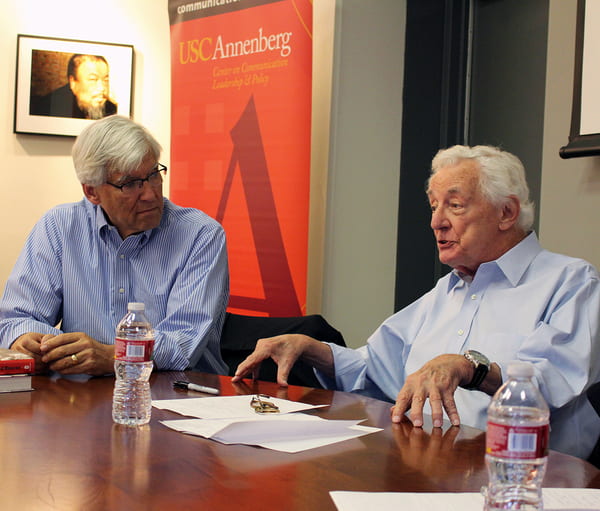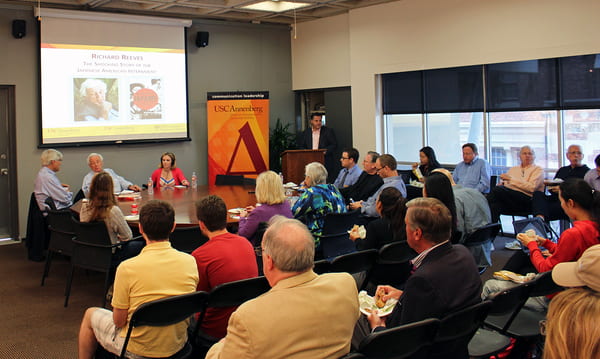The director of Voice of America called attention to the slanted news coverage by state-owned media outlets in foreign countries during the keynote luncheon of an international policy conference co-sponsored by the Center on Communication Leadership & Policy (CCLP) on April 17, 2015.
David Ensor was interviewed by CCLP senior fellow Adam Clayton Powell III at the Pacific Council on International Policy‘s Spring Conference. CCLP director Geoffrey Cowan, former VOA director, introduced Ensor and Powell to the more than 200 people from governmental, non-profit, academic, and private sectors who gathered at the historic and elegant California Club in downtown Los Angeles for the all-day conference.
“It seems lately, does it not, that the world is on fire,” said Ensor, “and is awash in propaganda. Massively funded voices for undemocratic and violent groups are proliferating in this digital age, and it seems like a lot of good information sometimes is not. Voice of America prevailed in the Cold War as a short wave radio broadcaster providing Soviet systems with reliable information. Could Voice of America be part of the answer this time?”
Ensor played a VOA video report on such propaganda and misinformation distributed by entities and countries like ISIS, Iran, China, and Russia. The video emphasized that VOA reports both sides of every story, whereas state-owned media in these countries often do not.
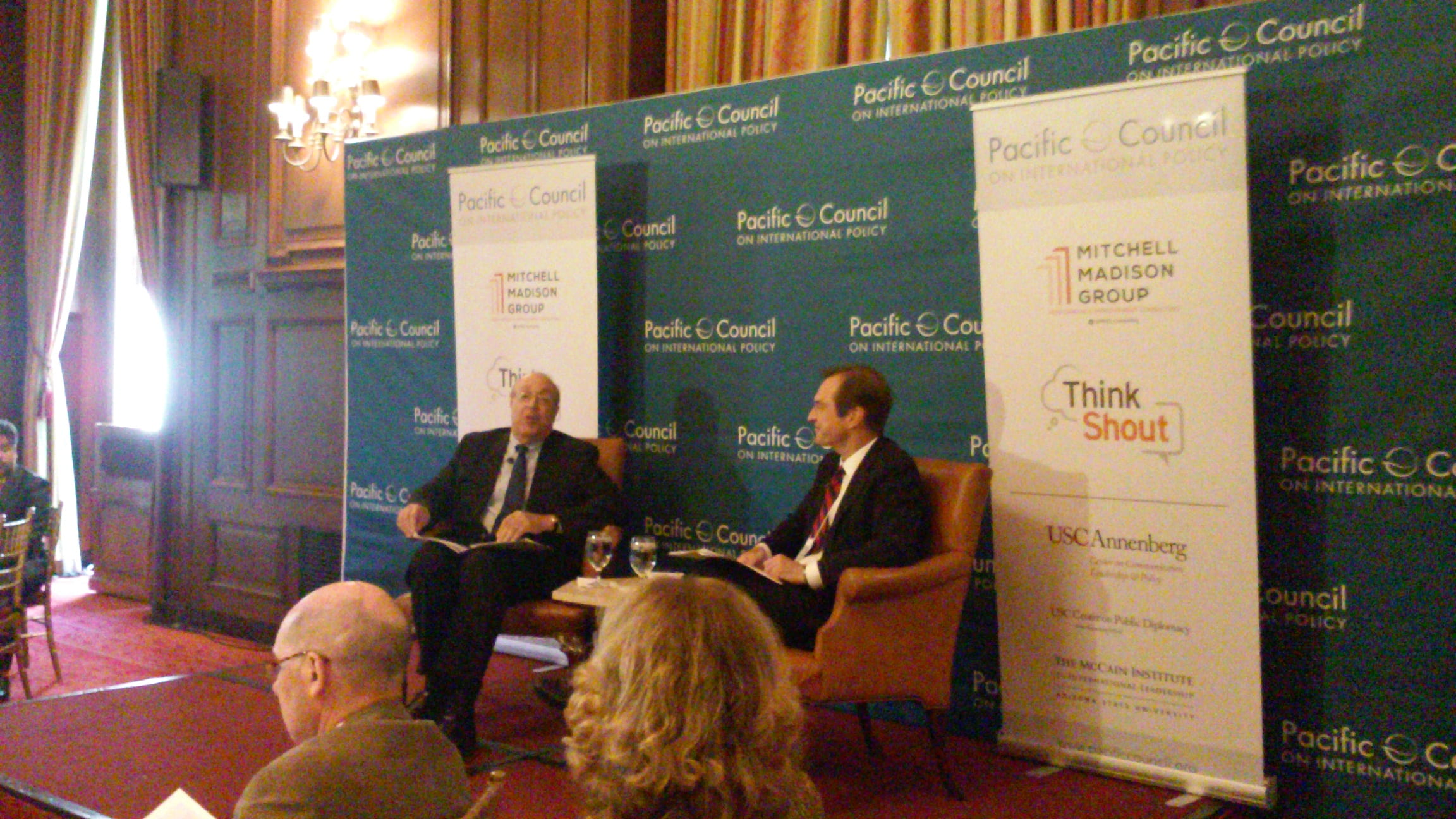
Adam Clayton Powell III interviewing David Ensor
“Some politicians here in America suggest sometimes that we should take a leaf from the propaganda playbook and that VOA should be turned into more of a mouthpiece for the administration of the day, whoever that is, and should promote American policy,” said Ensor. “I think if we go in that direction VOA would lose a considerable part of its credibility and with it, much of the over 170 million global audience which we currently enjoy. What works best is honesty.”
He added that the U.S. needs to take more seriously its “soft power,” including agencies like VOA, which has seen its budget slashed significantly over the past few years.
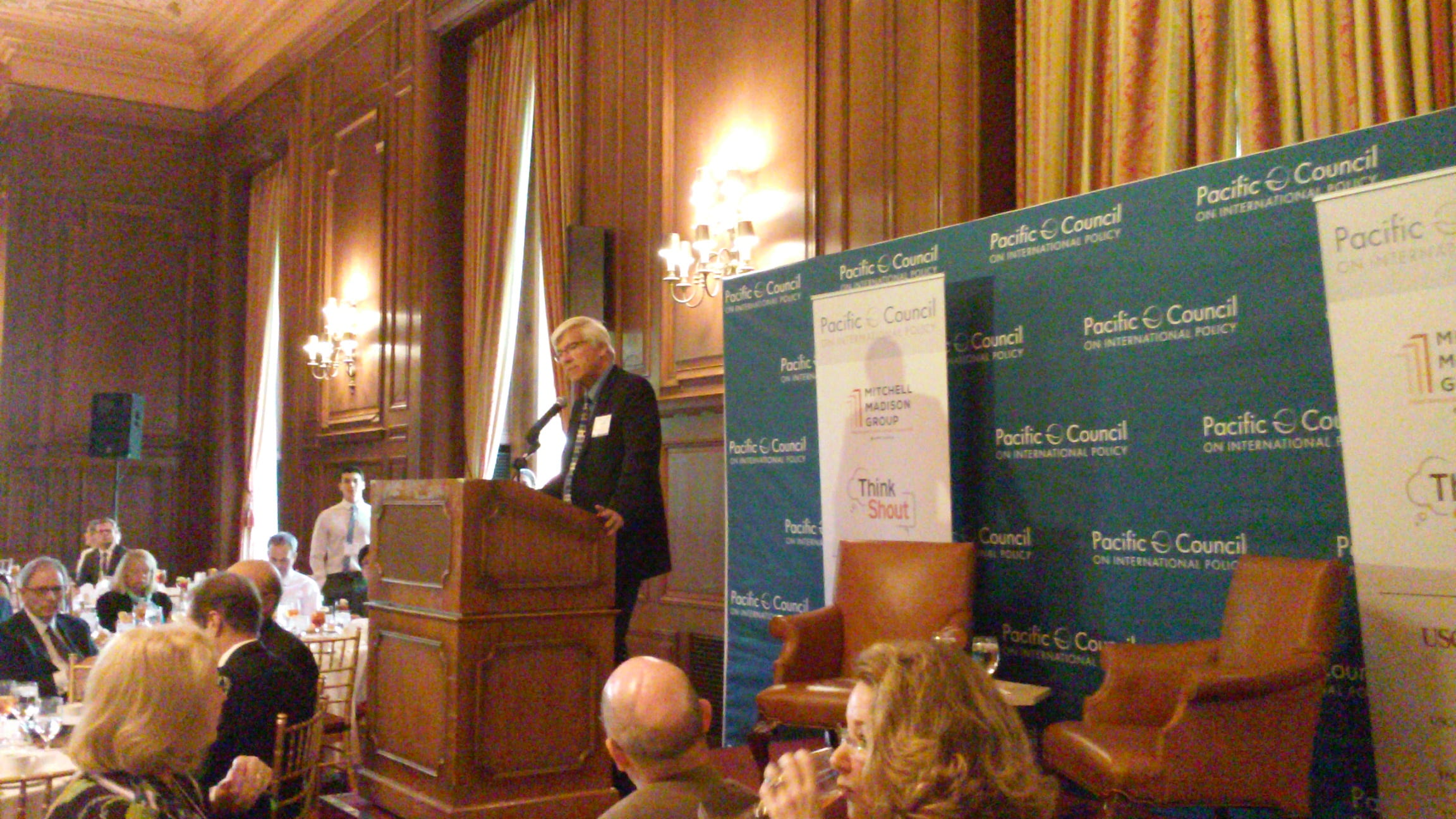
CCLP director Geoffrey Cowan introducing the keynote speakers
Ensor said VOA uses whatever platform they find works, from short wave radio to Twitter, to “explain our country and our values” to the world, providing unbiased coverage of world events to large audiences in foreign nations, including countries where it’s illegal to watch or listen to VOA, such as Iran and China.
“We make a lot of friends for our country and for our values, and we do it primarily through honest journalism,” said Ensor. “One of the most effective things we do as a country is to tell the truth, to export the First Amendment.”

Various break-out sessions of the conference included panel discussions on such topics as nuclear proliferation, rising tensions in the Balkans, conflict in the South China Sea, government advocacy in the digital age, combating corruption in Latin America, and the situation in Crimea. CCLP faculty fellow Philip Seib spoke on a panel about defeating the Islamic State and combating violent extremism through communications.
During the plenary session, CCLP advisory board chair Mickey Kantor debated U.S. trade priorities with Charles Rivkin, Assistant Secretary of the State Department’s Bureau of Economic and Business Affairs. A major topic of discussion was the proposed Trans-Pacific Partnership (TPP) trade agreement, which is currently winding its way through Congress. Kantor said that the United States needs to include China in the regional regulatory and investment treaty.
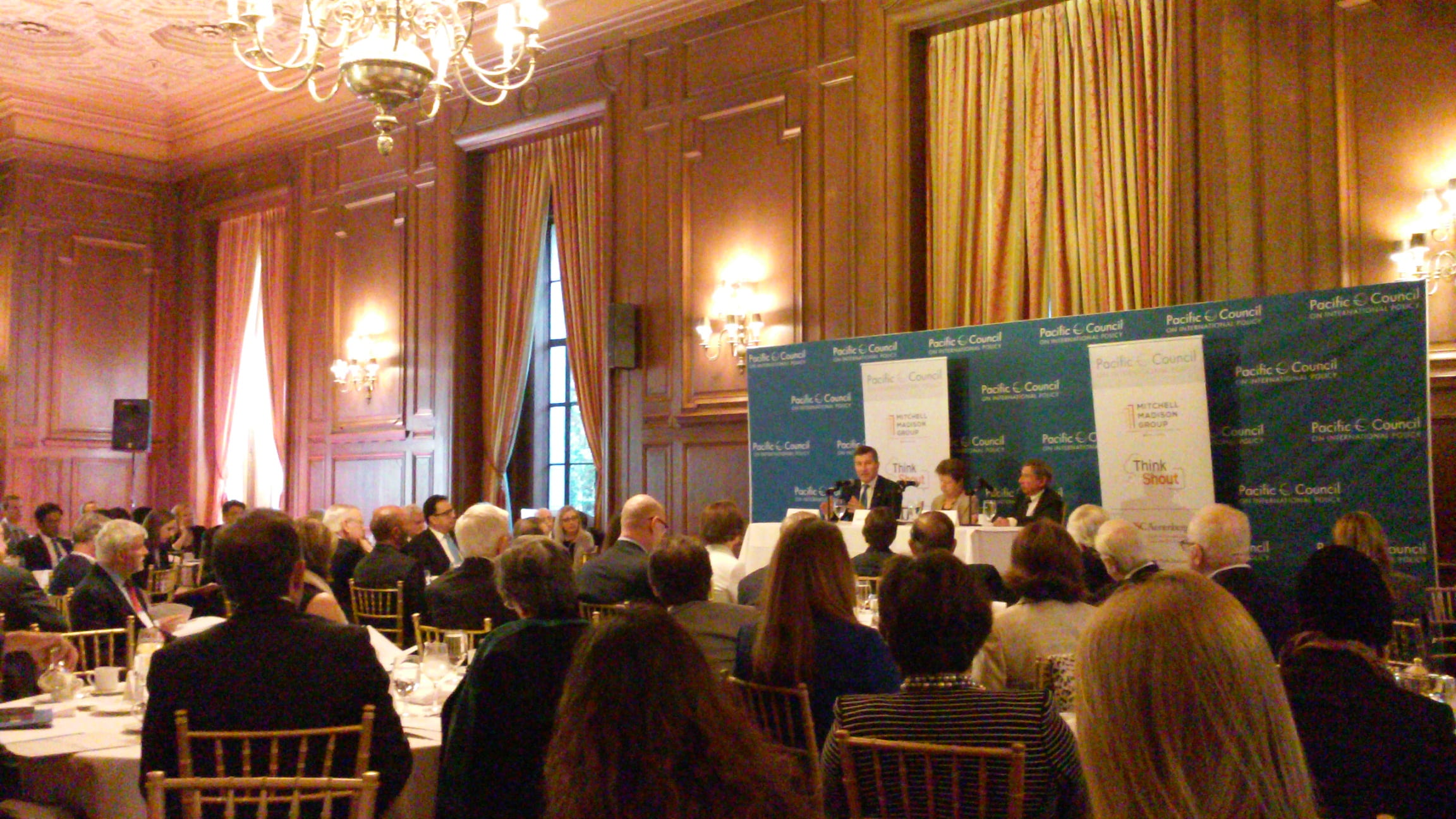
Mickey Kantor and Charles Rivkin debating U.S. trade priorities
“We are joined at the hip with the rest of the world,” said Kantor. “With China, we are missing an opportunity. China has indicated a year ago that it was interested in talking about joining the TPP. We have not reacted to that in an assertive way. We can disagree politically and militarily on certain issues with China, but we have nothing but a joint interest economically in doing things together. So I would hope if we get the TPP done this year that we bring China in.”
Rivkin said the U.S. now has the deepest and most integrated relationship with China than at any other point in American history, but Kantor said there’s more the U.S. can do.
“China is welcome to join the TPP,” said Rivkin. “But this is the highest standard trade deal ever negotiated in history, and China does not [currently] qualify for the TPP. If it can live up to the standards of the deal, China is welcome. I agree the more we work with China, the better off we are.”



